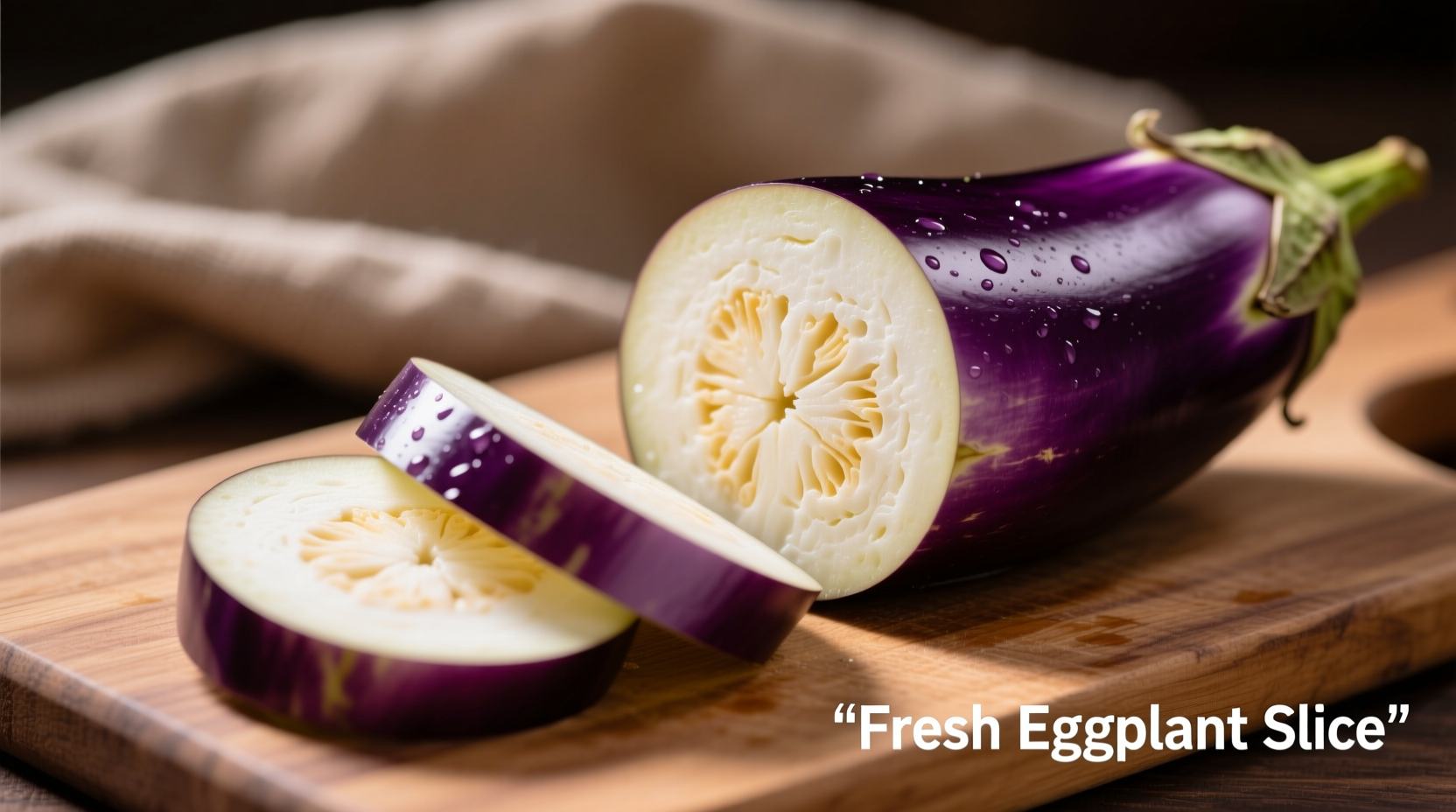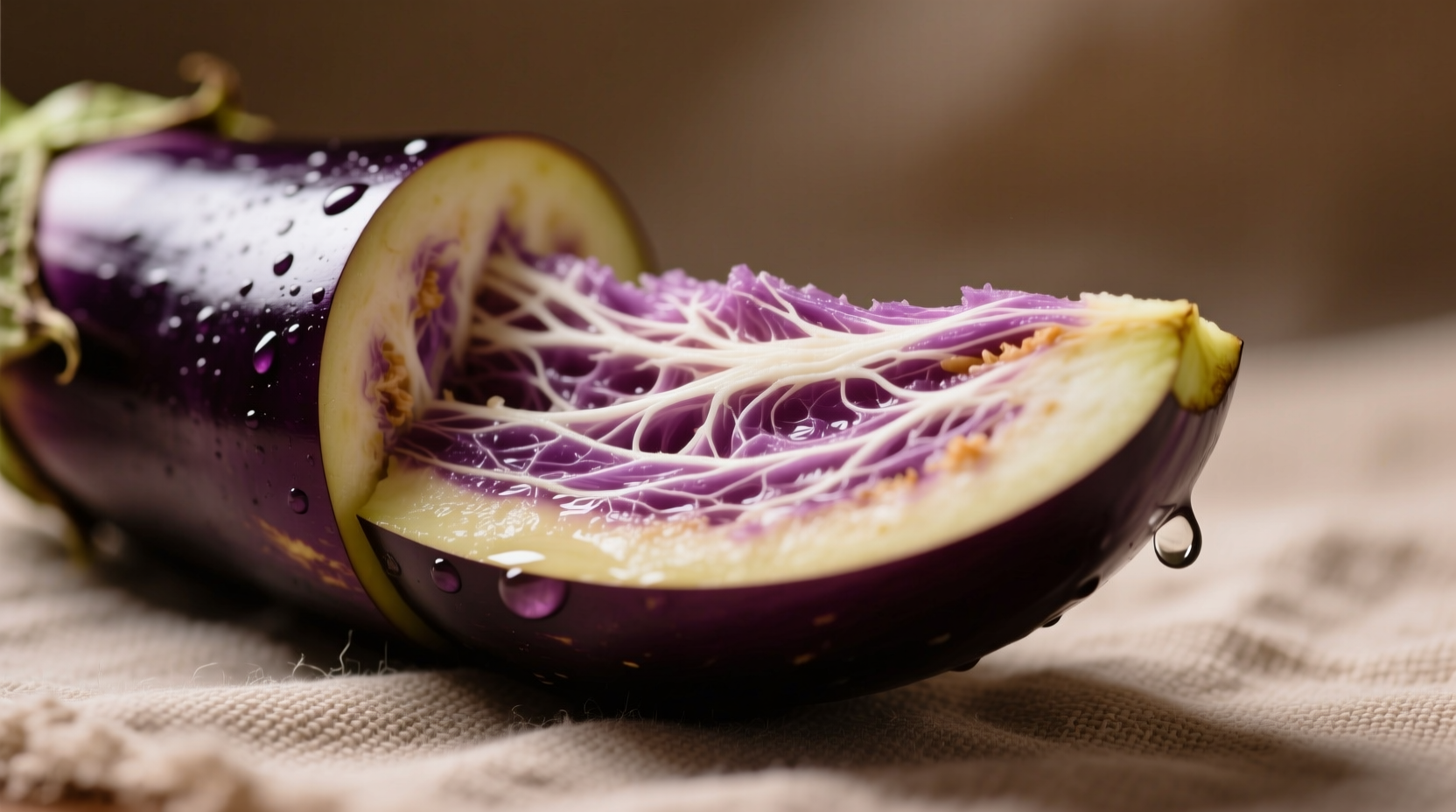Understanding what does an eggplant taste like is crucial for home cooks looking to expand their culinary repertoire. This versatile vegetable's flavor profile changes dramatically based on variety, ripeness, and cooking method—making it both challenging and rewarding to work with. Let's explore exactly what to expect when incorporating eggplant into your dishes.
The Science Behind Eggplant's Flavor Profile
Eggplant's distinctive taste comes from its natural compounds, primarily solanine—a glycoalkaloid also found in potatoes and tomatoes. While present in safe amounts, solanine contributes to eggplant's characteristic bitterness, especially in larger, mature specimens. According to research from the University of Minnesota Extension, younger eggplants contain less solanine, explaining why they taste milder.
| Eggplant Variety | Bitterness Level | Texture When Cooked | Best Cooking Methods |
|---|---|---|---|
| Globe (American) | Moderate-High | Creamy | Roasting, grilling |
| Japanese | Low | Firm yet tender | Stir-frying, steaming |
| Italian | Moderate | Meaty | Sautéing, baking |
| Indian (Baby) | Very Low | Delicate | Curries, roasting |
Raw vs. Cooked: The Dramatic Transformation
When tasting raw eggplant, you'll notice a pronounced bitterness and spongy, almost crunchy texture. This is why most cultures don't consume it raw. The real magic happens during cooking:
- Roasting: Brings out natural sweetness while creating a velvety texture—ideal for baba ghanoush
- Grilling: Adds smoky notes that complement eggplant's earthiness
- Frying: Creates a rich, meaty texture but requires careful oil management
- Steaming: Preserves delicate flavor while reducing bitterness
Professional chefs like Antonio Rodriguez emphasize that what cooked eggplant tastes like depends heavily on your preparation method. "Eggplant acts like a flavor sponge," he explains. "When properly prepared, it takes on the characteristics of whatever you cook it with while contributing its own subtle earthy backbone."

Why Some Eggplants Taste Bitter (And How to Fix It)
The bitterness question—why does my eggplant taste bitter?—plagues many home cooks. Several factors contribute:
- Ripeness: Overripe eggplants develop more solanine
- Variety: Larger globe eggplants tend to be more bitter than slender Asian varieties
- Storage: Eggplants stored too long lose moisture, concentrating bitter compounds
- Preparation: Skipping the salting step when needed
The Oregon State University Extension confirms that salting eggplant before cooking draws out excess moisture and bitter compounds through osmosis. Simply slice your eggplant, sprinkle generously with salt, and let sit for 30 minutes before rinsing and patting dry. For modern, less-bitter varieties, this step may be unnecessary.
Flavor Pairings That Make Eggplant Shine
Understanding what does eggplant taste good with unlocks its culinary potential. The vegetable's mild nature makes it incredibly versatile:
- Mediterranean: Tomatoes, garlic, olive oil, and herbs create classic ratatouille or caponata
- Asian: Soy sauce, ginger, and sesame transform it in miso glazes or stir-fries
- Middle Eastern: Tahini, lemon, and smoked paprika produce perfect baba ghanoush
- Indian: Spices like cumin, turmeric, and garam masala enhance its earthy notes
Food scientists at the USDA Agricultural Research Service note that eggplant's cellular structure contains air pockets that readily absorb surrounding flavors—explaining why it works so well in dishes like moussaka or eggplant parmesan.
Selecting the Perfect Eggplant for Optimal Flavor
Choosing quality eggplant significantly impacts what does aubergine taste like in your final dish. Follow these selection tips:
- Look for firm, shiny skin without wrinkles or blemishes
- Heavier specimens indicate better moisture content and freshness
- Stem should appear green and fresh, not dried out
- Gently press the skin—it should spring back slightly
- Smaller eggplants generally have fewer seeds and less bitterness
Remember that eggplant continues to ripen after harvest. Use within 2-3 days for best flavor, as prolonged storage increases bitterness. Unlike many vegetables, eggplant should be stored at room temperature rather than refrigerated to prevent texture degradation.
Common Eggplant Flavor Mistakes to Avoid
Even experienced cooks make these errors that negatively impact what does cooked eggplant taste like:
- Under-salting bitter varieties: Leads to unpleasant bitterness in final dish
- Overcooking: Creates a mushy texture that repels diners
- Using insufficient oil: Eggplant needs adequate fat to cook properly without becoming dry
- Skipping the resting period: Cooked eggplant benefits from 5-10 minutes resting before serving
- Peeling unnecessarily: Skin contains valuable nutrients and color; only remove if tough
When prepared correctly, eggplant delivers a satisfying, complex flavor experience that surprises many first-time eaters. Its ability to transform from potentially bitter to beautifully balanced makes it a rewarding ingredient to master.











 浙公网安备
33010002000092号
浙公网安备
33010002000092号 浙B2-20120091-4
浙B2-20120091-4